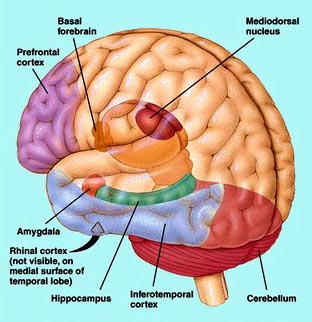 What is the most powerful stimulator of fear for human beings? Uncertainty. Uncertainty destabilizes our brain and causes the production of hormones such as adrenalin – a take action hormone, and testosterone – a take to fight hormone, and cortisol – a threat hormone. Together this suite of hormones provokes us into the defensive, or protect behaviors.
What is the most powerful stimulator of fear for human beings? Uncertainty. Uncertainty destabilizes our brain and causes the production of hormones such as adrenalin – a take action hormone, and testosterone – a take to fight hormone, and cortisol – a threat hormone. Together this suite of hormones provokes us into the defensive, or protect behaviors.
Uncertainty is the crucial fulcrum between distrust and trust. Uncertainty is an urgent clue alerting us to the need to attend to our surroundings and find ways to anchor or stabilize ourselves. While some people turn to others and partner when they are in states of fear, others pull away to turn inward and protect.
Neuroscientists are finding fascinating correlates between trust, distrust and uncertainty.
According to Angelika Dimoka, Ph.D., Temple University, “Distrust takes place in the lower brain (the Amygdala and Limbic areas) – which is also what becomes active when we are in high states of uncertainty - and trust takes place in the higher brain (Prefrontal Cortex)” which is also the part of our brain that enables us to reconcile doubt and develop strategies to handle risk and uncertainty.
Researchers have also linked the orbitofrontal cortex to uncertainty (Hsu et al. 2005), and demonstrated that when this part of the brain is activated, it increases distrust.
Why is this Important in Business?
The implications for business are profound. Why? When risk and uncertainty are high, there are proactive ways to lower or down-regulate the fear (distrust) networks, and up-regulate the trust networks. When we focus on down-regulating our fears and up-regulating our need to understand and be understood, we are literally re-balancing our neurochemistry.
Because this is a very interactive and social process, having conversations about fear, threat and uncertainty actually restores a steady state to our brains. Conversations are a co-regulation process (two people talking in healthy conversation acts as a regulator to emotions) creating a sense of calm, and of being understood and consequently being hopeful for the future.
 The part of the brain which becomes more active when people are sharing insights, wisdom, fears, threats and hopes, is the prefrontal cortex, and there is a strong chance that this highly engaging and caring conversation also triggers mirror neurons also located in the prefrontal area of the brain. These special neurons enable empathy between people – so we are not only quelling risks and fear of the future; we are bonding with others to do something about it. When this happens, higher levels of oxytocin are produced in the body – also adding to higher levels of collaboration and trust.
The part of the brain which becomes more active when people are sharing insights, wisdom, fears, threats and hopes, is the prefrontal cortex, and there is a strong chance that this highly engaging and caring conversation also triggers mirror neurons also located in the prefrontal area of the brain. These special neurons enable empathy between people – so we are not only quelling risks and fear of the future; we are bonding with others to do something about it. When this happens, higher levels of oxytocin are produced in the body – also adding to higher levels of collaboration and trust.
Conversations wherein people open up to each other about what’s really on their minds, actually stimulate a powerful brain alchemy for trust. When we are sharing and discovering with the intention of really understanding another’s way of seeing the world, we are more open than usual. It’s a state of trust when I sense this person cares about me (and not only how their message is being received) and what I have to say and do as a result of it. Unsurprisingly, that perception within our brains causes the release of oxytocin, a hormone, which prompts bonding and trust.
Bruce S. McEwen, Ph.D., a professor and head of the Laboratory of Neuro-endocrinology at The Rockefeller University, states, “Trust is a phenomenon that is enhanced by oxytocin, which gets people to be socially interactive. Then you have the Amygdala, which is the sentinel along with the Prefrontal Cortex, paying attention to decide if the interaction is going to be rewarding or punishing. If the interaction is punishing we feel more aggressive and distrustful. We have to be wary and we move into protect behaviors.” Under stress, testosterone levels are increased. If the interaction feels good you have more oxytocin and you relax. Testosterone works against oxytocin as does cortisol, another powerful hormone that is increased by stress. It’s the balance between these hormones and the neural systems that they interact with that give us the feelings of trust or distrust.
Conversational Intelligence®
When teams work together as partners to handle risk and uncertainty, they release a powerful neurochemistry that opens the brain’s ability to access new ways of thinking - in other words to become more innovative, adaptive and open to change. Not only is oxytocin flooding our brains, but there are also elevated levels of dopamine, the pleasure hormone, and serotonin, which increase our confidence. What this looks like – from the perspective of a fly on the wall – is a dynamic exchange of ideas, insights, beliefs, and a higher level of listening than we normally experience. People refer back to something others said earlier in the conversation, and they use each other’s thoughts as a platform for more insights to emerge.
When an organization, team or relationship reflects higher levels of Conversational Intelligence, we often see higher levels of innovation, breakthrough thinking and the ability to let go of the past and embrace the future. All of this new dynamic releases energy, promotes confident risk-taking, and enables the company to produce better work.
Takeaway Tips
 Feeling uncertain? Take a moment to relax and breathe, before the suite of hormones known as adrenaline, testosterone and cortisol take charge of your wellbeing.
Feeling uncertain? Take a moment to relax and breathe, before the suite of hormones known as adrenaline, testosterone and cortisol take charge of your wellbeing.- See if you can identify the source of any distrust that may be arising. Is it to do with you, the other person(s) or the situation itself? This will help anchor you.
- Focus on rebalancing your chemistry. Down-regulate your fear (distrust) networks and up-regulate your need to understand and be understood. How? Start talking. Conversations are inherently a co-regulating process.
- Conversations stimulate a powerful brain alchemy for trust. Opening up is the result of sharing and discovering. When you perceive that you are cared about, oxytocin, a hormone that prompts bonding and trust, is released, thereby easing the tribulations of conflict.
*** Conversational Intelligence is a trademark of Benchmark Communications, Inc./The Creating WE Institute








